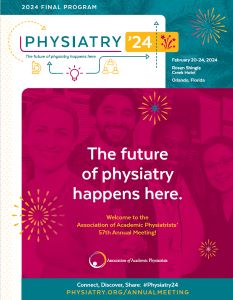COVID Rehabilitation
Poster Gallery
215 - Improvements in Behavioral Health Symptoms Utilizing the Novel “Covid Resilience Program” in Long-Covid Patients: A Case Series
Thursday, February 22, 2024
5:00 PM - 6:30 PM EDT
- RW
Rachel Welbel, MD
Assistant Professor
Rush University Medical Center
Chicago, Illinois, United States
Presenting Author(s)
Case Diagnosis: In mid-2021, we founded the Covid Recovery Clinic to treat patients with post-acute sequelae of SARS-CoV-2 infection (PASC). PASC refers to a variety of symptoms (e.g. anxiety, depression, fatigue, dyspnea, “brain fog” etc.) that occur four or more weeks after the initial COVID-19 infection and are unexplained by an alternative diagnosis. Although approximately 30% of PASC patients develop behavioral health symptoms, treatment for this population is limited. Therefore, our behavioral health team created the Covid Resilience Program, a highly accessible and efficacious treatment option.
Case Description: The Covid Resilience Program provides virtual group therapy that educates patients on mindfulness, mindful breathing, cognitive distortions, cognitive defusion, and meditation. Patients’ symptoms of anxiety and depression are assessed at the beginning, during, and after the program, using the General Anxiety Disorder-7 (GAD-7) and Patient Health Questionnaire (PHQ-9) respectively. Preliminary results show significant improvements in both anxiety and depression. Positive feedback was also received from participants of the group.
Discussions: PASC-related symptoms may lead to a decreased quality of life, chronic illness, and disability. There is a need for more accessible treatment options. The Covid Resilience Program addresses these issues, as it is virtual, and can be completed in a patient’s home. Furthermore, preliminary results suggest our novel virtual program significantly improves PASC symptoms of anxiety and depression. Anecdotally, patients have also reported decreased feelings of isolation due to the ability to connect with others.
Conclusions: PASC is a complicated spectrum of symptoms with limited management and treatment options. The Covid Resilience Program has the potential to enhance treatment accessibility and outcomes for PASC patients with behavioral health symptoms. Its virtual design may also make it easier to implement in other healthcare systems. Future research should continue to investigate the efficacy and feasibility of this treatment design.
Case Description: The Covid Resilience Program provides virtual group therapy that educates patients on mindfulness, mindful breathing, cognitive distortions, cognitive defusion, and meditation. Patients’ symptoms of anxiety and depression are assessed at the beginning, during, and after the program, using the General Anxiety Disorder-7 (GAD-7) and Patient Health Questionnaire (PHQ-9) respectively. Preliminary results show significant improvements in both anxiety and depression. Positive feedback was also received from participants of the group.
Discussions: PASC-related symptoms may lead to a decreased quality of life, chronic illness, and disability. There is a need for more accessible treatment options. The Covid Resilience Program addresses these issues, as it is virtual, and can be completed in a patient’s home. Furthermore, preliminary results suggest our novel virtual program significantly improves PASC symptoms of anxiety and depression. Anecdotally, patients have also reported decreased feelings of isolation due to the ability to connect with others.
Conclusions: PASC is a complicated spectrum of symptoms with limited management and treatment options. The Covid Resilience Program has the potential to enhance treatment accessibility and outcomes for PASC patients with behavioral health symptoms. Its virtual design may also make it easier to implement in other healthcare systems. Future research should continue to investigate the efficacy and feasibility of this treatment design.

